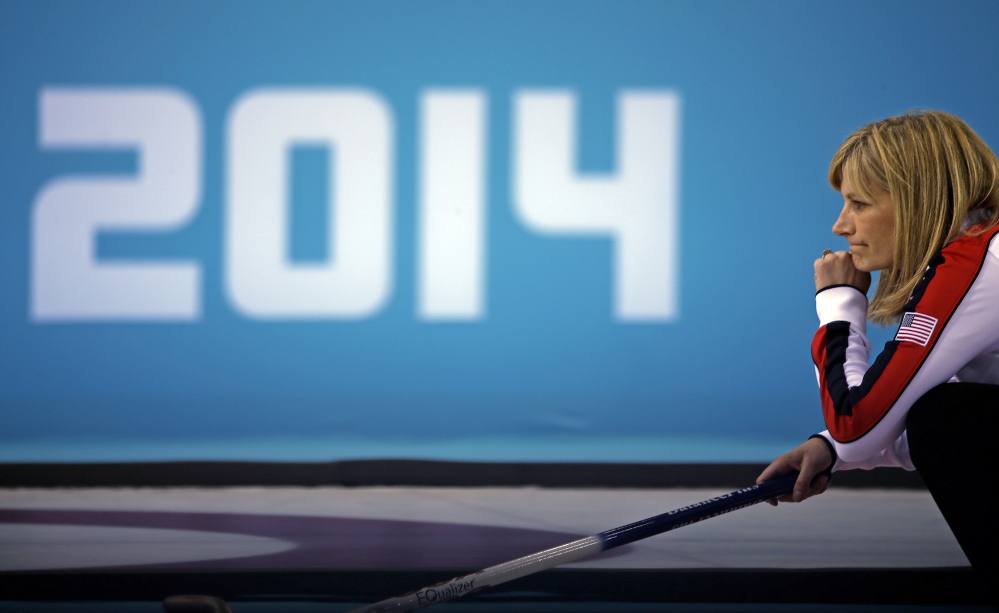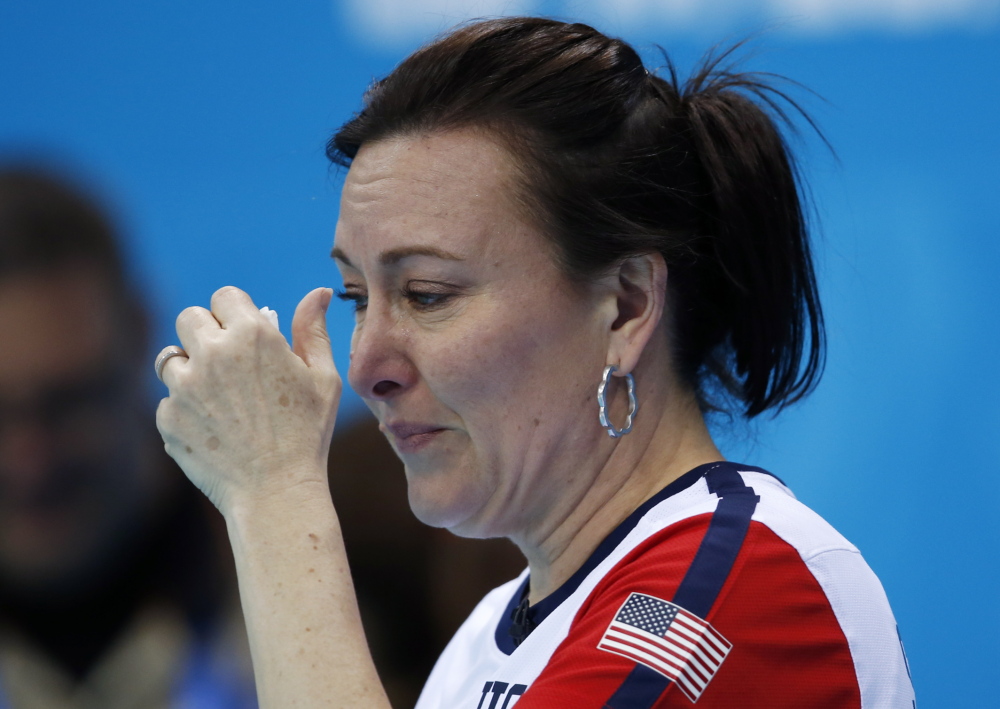SOCHI, Russia — American curler Ann Swisshelm blew her nose in a tissue, wiped away some of her tears and stared down a sheet of ice for the final time in her career at the highest level of her sport.
At the end of the sheet was an electronic scoreboard. It read: South Korea 11, USA 2.
If that made for bleak reading for Swisshelm and curling fans all over the United States, they should avoid looking at the overall women’s standings.
The U.S. women’s team finished the Olympic curling tournament Monday in last place for a second-straight Winter Games, this time with just one win in nine games. The U.S. men’s team didn’t fare much better, finishing next to last at 2-7.
“I just wish I could start all over again,” said U.S. player Debbie McCormick, who was the team’s skip in 2010.
Understandably, back-to-back Olympic failures are leading to questions about the structure of curling in the U.S. at the highest level.
At present, teams in the U.S. are self-formed and made up of players who balance curling with their full-time jobs. U.S. skip Erika Brown, 41, is a mother of two and a physician’s assistant who fits in curling practice during her lunch break. Teammate Jessica Schultz, 29, is a physical therapist’s assistant.
Their team must compete against other teams made up of part-time curlers at the U.S. Olympic trials to reach the games.
Most rival nations tend to cherry-pick the best players for one elite team, which receives all the funding from that country. Britain, for example, lavished 5 million pounds ($8.4 million) on its top curlers in the last Olympic cycle. Russia and China have similar elite teams.
Will the U.S. have to go this way to stay competitive?
“I’m not in support of that,” Brown said. “Just because, as somebody who has been in this game for so long, it’s about the team and about relationships you develop.
“As much as it’s an Olympic business these days, you’re still in a pretty small, intimate team. I think there’s enough top curlers in the U.S. that you can continue generating good competition.”
Swisshelm said she wouldn’t wish a such a system on anyone, in part because there is no professional tour or a way for a full-time curler to make a living in the game once their Olympic career is done.
“But if an organization goes to cherry-picking athletes and you have a mistimed injury, you have no education, no job skills,” Swisshelm said. “What do you do?”
USA Curling accepts that changes need to be made to give the U.S. men’s and women’s teams a chance of winning gold. But Rick Patzke, chief operating officer of USA Curling, doesn’t foresee a time — at least in the near future — where the U.S. has a single elite team.
“I think you need to bring more than just four people up,” he said. “I think you need to have a program that funnels the right people to the top.
“We have always tried to embrace the traditions and culture of the sport but, on the flip side, if we aren’t in the Olympics, how much interest are we losing? I think there has to be an understanding in the organization: Are we all in, in pursuit of medals? Or do we just have one foot in? There’ll be good discussions in the coming weeks.”
Heading into the Olympics, the Americans were seen as long shots for a podium finish. Erika Brown’s rink finished fourth in the world championship last year and all four members of the team had previous Olympic experience.
But there has been embarrassment in Sochi, including conceding an Olympic-record seven points in one end to Britain. And huge defeats: to Britain (12-3), Denmark (9-2) and South Korea. And heartbreaking losses: a 7-6 extra-end defeat to first-place Canada and a 7-6 defeat to second-place Sweden.
“You have the No. 1 golfer in the world in Tiger Woods and every now and then he misses the cut,” Swisshelm said. “Nobody begrudges him an off week. Unfortunately for us, that off moment happened right here in the Olympics.”
The 45-year-old Swisshelm, of Chicago, said the defeat to Korea was her last competitive game. She doesn’t know what’s in store for her next. Brown, of Madison, Wis., said Sochi will likely be her last Olympics. McCormick, of Rio, Wis., will be 44 by the 2018 Games arrive in Pyeongchang.
The U.S. women’s team is likely to have a very different look by then. They hope, too, for different results.
“We have to figure out how we elevate the best of the best in the U.S. to be the best of the best in the world,” Patzke said, “because it’s not happening right now.”
Send questions/comments to the editors.




Comments are no longer available on this story